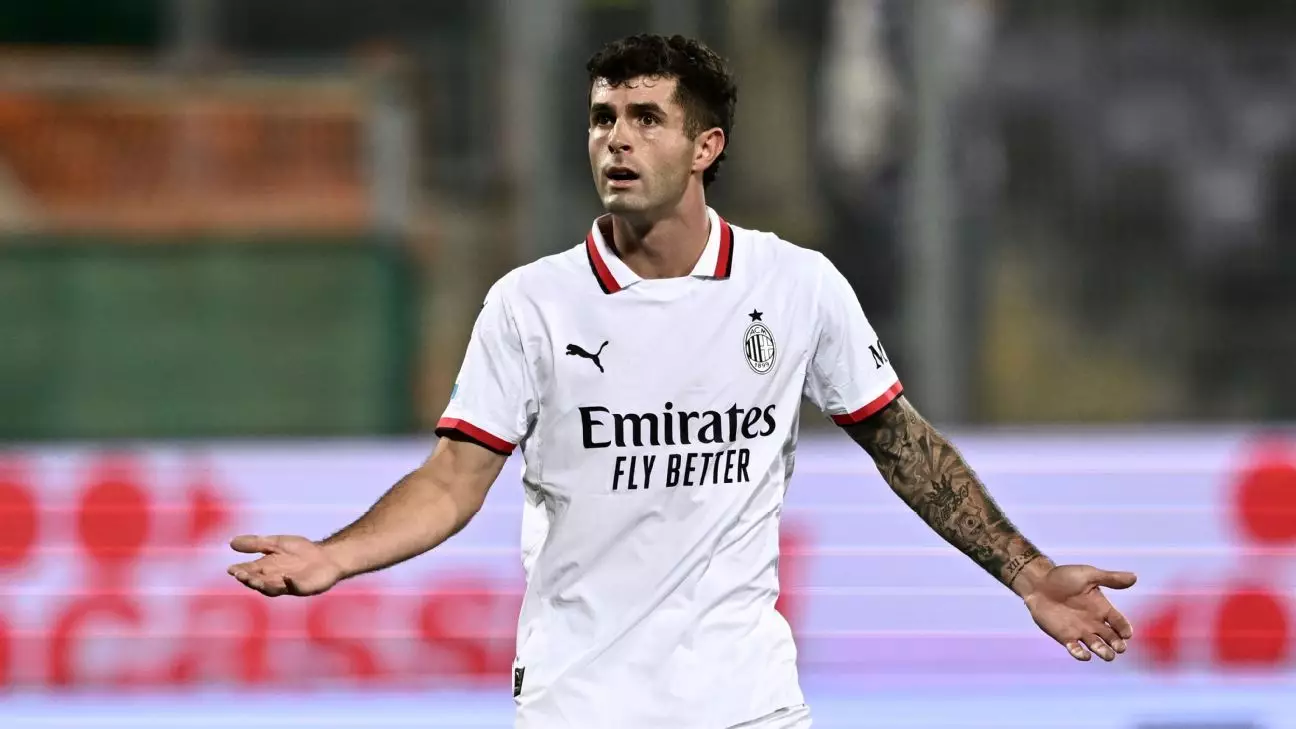In a surprising twist during the recent Serie A match against Fiorentina, AC Milan’s head coach Paulo Fonseca voiced his bewilderment over Christian Pulisic’s absence from the penalty spot, despite being the team’s designated penalty taker. The Rossoneri faced a challenging 2-1 defeat, a result that was exacerbated by the failure to convert two critical penalty opportunities. Instead of stepping up himself, Pulisic saw his teammates, Theo Hernández and Tammy Abraham, take the responsibility, which raised eyebrows in the football community.
Fonseca did not hold back in expressing his disappointment regarding this tactical oversight. “Our designated penalty taker is Pulisic,” he stated, evident irritation in his voice. “I don’t know why the players changed their minds.” This statement underscores a crucial point about team dynamics and the importance of adhering to established roles during high-pressure situations. Pulisic, who had been performing exceptionally well, contributing significantly to the team’s attack, sat perplexed as his teammates assumed roles that left many questioning their decision-making processes. This moment reflects broader issues within the team, such as communication and the adherence to strategy during critical match phases.
The Impact of Missed Opportunities
Despite his absence from the penalty taker position, Pulisic did manage to score AC Milan’s equalizer in the 60th minute, showcasing his talent and resilience. However, as the match progressed, the complexities of his week prior—which involved managing a flexor problem—came to light. Fonseca’s decision to substitute Pulisic with Samuel Chukwueze in the 81st minute might indicate a tactical shift or a precautionary approach to preserve his star player, an aspect that adds another layer to the ongoing discussions about player management.
The context of the match also highlights the challenges faced by AC Milan, who, after missing not one but two penalties—both saved by Fiorentina’s new goalkeeper, David de Gea—found themselves on the back foot. The culmination of these factors led Fonseca to remark that it becomes “difficult to win despite creating a lot.” This reflects the tension in balancing immediate performance with long-term player management.
Reflections on Refereeing and Team Performance
The match’s officiating also drew scrutiny from Fonseca, who argued that the penalties awarded did not align with the essence of the game. He lamented that “one touch cannot be enough to give a penalty,” echoing the frustrations of many coaches who feel that the current interpretation of football rules sometimes strays too far from the spirit of competition. This assertion suggests that the reactionary nature of refereeing decisions can overshadow the game itself, creating an environment filled with discontent rather than competitiveness.
Despite the challenges, Fonseca chose not to dwell on refereeing errors or missed chances as scapegoats for the defeat. He faced the reality of the moment: two missed penalties and a defensive lapse that ultimately sealed their fate. The loss ended Milan’s impressive three-game winning streak and positioned them sixth in the Serie A standings, trailing Napoli by five points—a concerning situation as they head into international play.
As AC Milan allows time for reflection during the international break, the pressing question remains whether the issues revealed in this match can be rectified. Will Pulisic reaffirm his role as the go-to player for penalties? Can the team streamline their decision-making process in high-stakes moments? As Fonseca navigates these waters, the Rossoneri’s future performance will depend on their ability to unify and learn from this bitter lesson.

